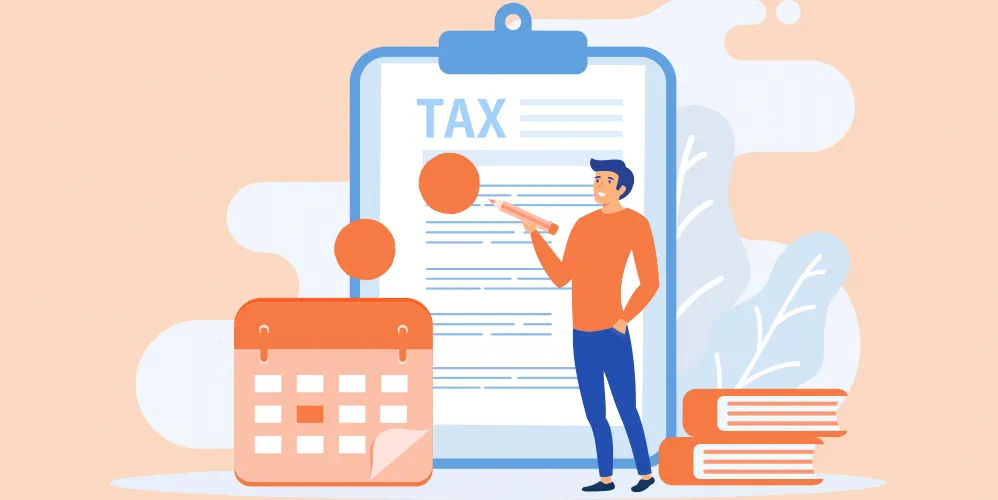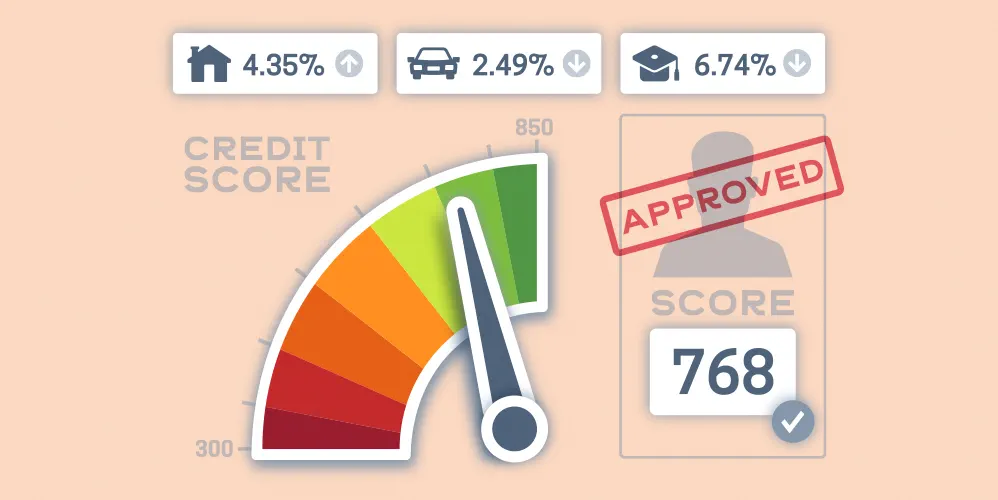
How to Pay Off Your Personal Loan Quickly?
31 Mar 2022

Table of Content
-
Tips for paying off personal loan early
-
Review the debt you owe
-
Understand your repayment capability
-
Try to make an extra payment
-
Round up the EMI amount
-
Use a bonus to make a larger payment
-
Consider doing a loan balance transfer
-
What is the pre-payment penalty applied to personal loan pre-closure?
-
What are the documents required for loan pre-closure?
-
Documents to be submitted to the lender
-
Documents to be collected from the lender
-
Key Takeaways
A personal loan can prove to be a boon in helping you meet planned and unplanned expenses. Many borrowers often prefer personal loans over other types of loans as these loans are apt for all purposes. Whether you need to fund your home renovation or take that long-overdue family vacation, a personal loan can help fund a variety of expenses.
Personal loans can be availed at attractive interest rates and usually require minimal documentation. However, before taking the loan, you also need to think about repayment. It is always better to pay off your loan faster as doing so helps you save on interest.
Paying off your personal loan as soon as possible can positively impact your credit score and eligibility for further loan requests. It also puts you in a better position financially. Let’s understand how to pay off a personal loan quickly.
Tips for paying off personal loan early
Review the debt you owe
Before you start planning how to repay your loan faster, it is crucial that you first know the exact amount you owe. Examine all the payments you have made till date and the ones that are due. Then, make a note of all the other payments you have on your list every month, like home loan EMIs, insurance premiums, household bills, and credit card balances. Only when you have a clear understanding of your finances, can you create a repayment strategy that will work. Knowing how much you owe will help you understand the maximum amount that you can put towards your personal loan payments each month.
Understand your repayment capability
Once you have a clear idea of the amount of money you owe, you need to evaluate your repayment capacity. Analyse your current income and financial obligations. Try and estimate how much can you contribute each month towards your loan repayment. Find out if there is a way by which you can increase your repayment capacity. You may want to consider cutting down on monthly expenses or working on getting an additional source of income. Never overestimate your ability to repay your personal loan as you may need to keep spare funds in your savings account for emergencies.
Try to make an extra payment
A simple way of ensuring that you pay your personal loan faster is by making an extra payment every year. Paying one additional EMI each year will help you pay off your loans more quickly. With each payment, the principal amount and interest payable considerably reduces and you come closer to ending your debt.
If you feel an extra EMI will be heavy on your pocket, you can split the amount into smaller portions. For example, if you pay an EMI of INR 6,000 per month. You can divide the given sum by 12 months and add INR 500 to your monthly EMI. So technically, you are paying the usual EMI amount plus an additional sum each month.
Round up the EMI amount
Another great way of paying off your personal loan early is by rounding up the EMI amount. For many people, the EMI amount might not be a whole number but rather a decimal. Generally, paying a round figure amount often helps in settling a loan early.
Now, you may think that paying a rounded-up amount won't make that much of a difference to your loan repayment. However, that is not always true. Even the smallest of extra contributions will help you repay your loan faster. For instance, if your EMI is INR 4375.30, opt to pay INR 4500 instead. The additional contribution of 120 INR also makes a huge difference if added up over the course of a few months.
Use a bonus to make a larger payment
Try using any salary bonus or work incentives to pay off your personal loan. You may sometimes feel that you are losing out on enjoying the bonus amount that you have worked so hard for. However, you are actually helping yourself reduce your debt more quickly. So, try to use any surplus cash that you get to pay off your loan.
Consider doing a loan balance transfer
The interest rate levied plays a huge role in determining how much a loan will cost us. Now, you may have had to accept a loan with a higher interest rate in the past due to lack of alternative options. With time, if you find a lender who is offering you a loan at a lower interest rate and on better repayment terms, you can choose to switch your loan over to them. This is called a loan balance transfer. With a loan balance transfer, you may save money with better interest rates and work out better, more affordable repayment terms.
What is the pre-payment penalty applied to personal loan pre-closure?
Most banks charge a pre-payment penalty if you close your loan earlier than expected. The penalty amount is calculated as a percentage based on either the existing loan balance or the interest the lender will lose due to pre-closure. Generally, the pre-payment penalty is somewhere between 2% to 5% of your loan amount. The exact charge can vary between lenders.
Do remember that all details about the pre-payment penalty and conditions applied to this penalty are mentioned in your loan agreement in detail. Make sure you read the agreement thoroughly before signing it.
There are two ways by which you can try to avoid paying the pre-payment penalty. First, look for a lender that does not charge a penalty for pre-closure. Second, opt for a lender that allows you to pay off your loan penalty-free after a specific point in the tenure.
What are the documents required for loan pre-closure?
There are a few documents that need to be exchanged between a lender and borrower in case of loan pre-closure. Ensure that you have all these documents as they are proof that you have repaid your loan.
Documents to be submitted to the lender:
- KYC documents
- All relevant loan documents
- Bank statements reflecting EMI payments made to date.
- Pre-payment statement
Documents to be collected from the lender:
- Receipt of pre-closer payments
- No objection certificate (NOC) to close the personal loan
- Personal loan closure certificate
- Payment due certificate
You may want to ask your lender for an exact list of the documents needed as per their process.
Key Takeaways
Here’s a quick recap of what we learnt today:
- Review and understand your capacity for making extra payments on your personal loan
- Try to get extra income to put towards your personal loan payments
- Look for lenders who do not charge a pre-payment penalty if you close your loan early or who waive this penalty after a certain amount of time
Popular Articles
Tag Clouds
Related Articles










Guide to Getting Agriculture Loan: Application, Eligibility & Required Documents
-
Disclaimer
The contents of this article/infographic/picture/video are meant solely for information purposes and do not necessarily reflect the views of Bank of Baroda. The contents are generic in nature and for informational purposes only. It is not a substitute for specific advice in your own circumstances. Bank of Baroda and/ or its Affiliates and its subsidiaries make no representation as to the accuracy; completeness or reliability of any information contained herein or otherwise provided and hereby disclaim any liability with regard to the same. The information is subject to updation, completion, revision, verification and amendment and the same may change materially. The information is not intended for distribution or use by any person in any jurisdiction where such distribution or use would be contrary to law or regulation or would subject Bank of Baroda or its affiliates to any licensing or registration requirements. Bank of Baroda shall not be responsible for any direct/indirect loss or liability incurred by the reader for taking any financial decisions based on the contents and information mentioned. Please consult your financial advisor before making any financial decision.
How to Get a Personal Loan Without a Salary Slip in India?
Personal loans can prove helpful in consolidating your existing debts and helping you meet financial emergencies. You can even procure a personal loan to finance special occasions such as a marriage ceremony or an anniversary holiday. It is one of the
most popular types of loans available in the market today.
9 Best Home Loan Tips 2022
A home not only provides a roof over your head, but also doubles up as an investment. Your property can be sold for money at some point in the future. It can also function as collateral for a loan. Home loan is one of the best ways to finance the purchase of your dream flat or house. A home loan helps you safeguard your savings and gives you all the required flexibility to repay the cost of your property with comfort and ease by the way of EMI.
Now, there are so many options of home loans available out there. Choosing just one among all these can be quite confusing. To help you get the best option, here are a few home loan tips that can prove helpful.
1. Check your CIBIL score
Home loans are typically of high amounts and long tenures; thus, they can only be given to individuals who have a good credit history. The minimum home loan credit score required by most of the banks in India is ranges between 650-750. Furthermore, your CIBIL score is directly proportional to the loan amount you are eligible for. This means that having a higher CIBIL score helps you procure loans of higher amount. Generally, having a CIBIL score of 750 and above is considered ideal for procuring a good and substantial value of a home loan. If you check your CIBIL score and find it to be below 650 or just at par with 650, it is better to work on increasing your score before applying for a home loan. Having a good CIBIL score can also help you procure a loan at a relatively lower interest rate.
It is recommended to check your CIBIL score every 3 to 6 months. This will help you keep track of your creditworthiness and devise a strategy to increase your score.
2. Start saving for a down payment
It is important to plan your finances and save up for the down payment before initiating your application for a home loan. This is, perhaps, the best home loan advice that anyone can give you. Lenders typically require you to pay 10% to 30% of the total purchase value of the house or property as down payment depending on your loan amount.
With increasing expenses, it can be quite difficult to save for your home loan down payment. However, making small changes in your monthly budget can ensure that a portion of your income is put aside in a savings account/Investment account etc. to build a corpus for the down payment.
3. Get your financial documents in order
When you take a home loan, you will be required to provide your lender with certain documents such as your recent salary slips, ITRs, and bank account statements, among other paperwork. It helps to keep these documents ready in advance so that you do not have to rush at the eleventh hour to find what you need.
The list of documents required for a home loan can vary between lenders. The documents required can change slightly depending on whether you are salaried or self-employed. Hence, it is better to check with the lender about the records that are required by them. You can easily get a list of required documents by visiting the lender’s website or by calling them up directly.
4. Use a home loan EMI calculator
Understanding your EMI payments is one of the most important home loan repayment tips to keep in mind. Calculating your monthly EMI payments before applying for a home loan can help you avoid taking on debt that you cannot afford to repay.
EMI calculations are dependent upon the interest rate charged and tenure of the loan among many other factors; hence, EMIs are not that easy to calculate manually. Fortunately, you can use the lender’s home loan EMI calculators online to get an idea of the loan amount that you can afford to borrow.
5. Select the right type of home loan
There are many different types of home loans offered by every lender. Bank of Baroda offers its customers different types of home loans including top up loan, home improvement loan, and a home loan takeover scheme, among others. Each type of home loan offers different benefits to borrowers. Hence, it is better to compare bank loans and choose the right home loan that best suits your needs.
When taking a home loan, you can also choose between a fixed interest rate home loan or a floating interest rate home loan. While a fixed interest rate loan will have a constant interest rate throughout the loan tenure, the floating interest rate will see the interest rate change as per the market.
6. Compare the different home loan offers
The cost of procuring a home loan varies between lenders too. When selecting a home loan, you should consider the interest rate charged, home loan processing fees, application fees, technical valuation charges and other such expenses before starting your application process.
To get the best home loan in 2022, do make sure to compare the different loan offers and the other ancillary costs that are associated with borrowing. This research will help you make a smart choice. Remember that a home loan is debt that you take for a long term – generally between 20 to 30 years. So, you would want to pick the best loan provider who fulfils your financial needs for peace of mind.
7. Stay connected with your lender
After you submit your loan application, the lender may require some additional information from you before processing it ahead. Giving quick responses to the lender will help you get the loan amount disbursed swiftly.
It is also imperative to stay in touch with your lender throughout the loan tenure. This will help you build trust with the lender and get the timely help if needed.
8. Keep your credit score maintained during the loan processing period
Lenders typically check your credit score before accepting your loan application. However, they can also pull up your scores again before sanctioning the loan. This helps them ensure that you are a creditworthy individual and are consistent in repaying your debts. Hence, do not get lax on your payments after the lender has accepted your home loan application. Rather, pay more attention to your credit card bills and ensure that they are paid on time. It is also better to avoid applying for new loans until your home loan is sanctioned. This will help you maintain your credit score.
9. Read all the loan related documents carefully
It is particularly important to understand the different terms and conditions of the home loan before signing the documents. Ensure that you go through the documents and get comprehensive knowledge of what you are signing up for. You can contact your lender and ask them for any help you need in understanding the fine print.

